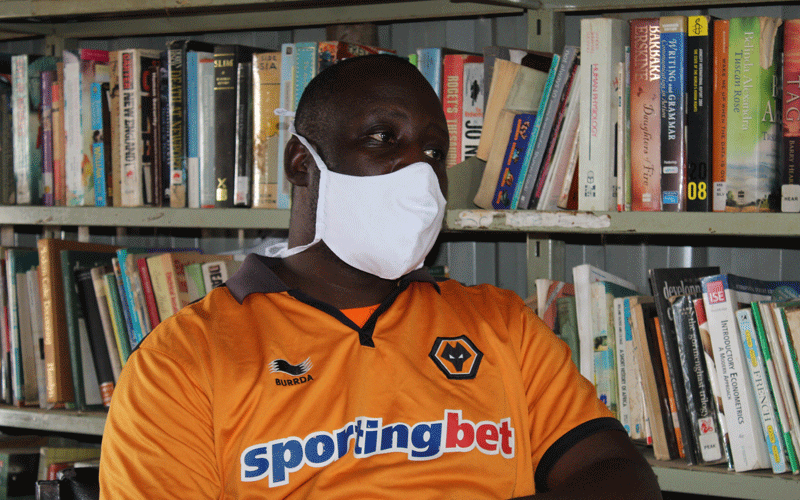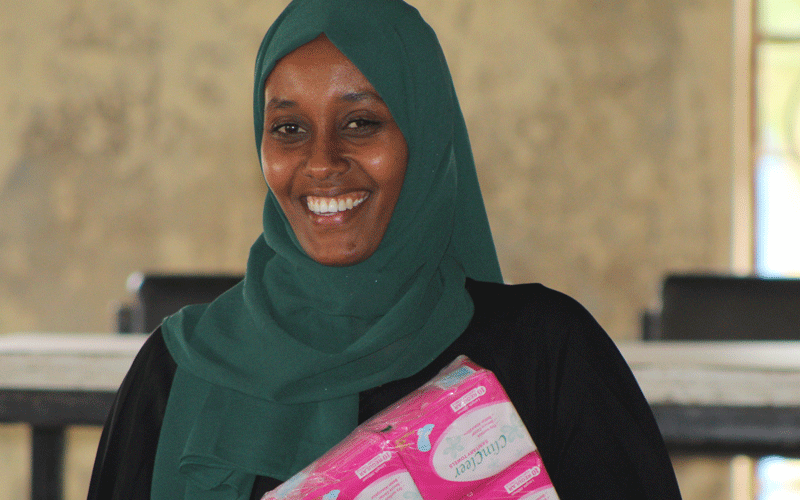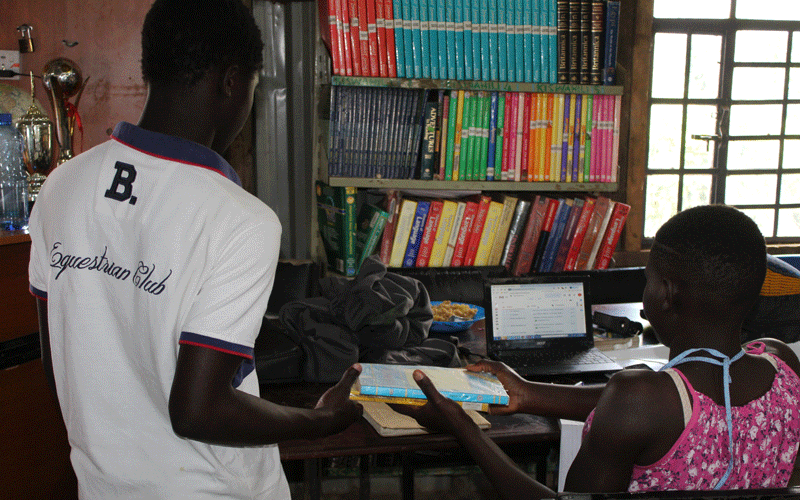No Internet? Worry not, all it takes is a book at a time
By Lilian Kaivilu, July 24, 2020Lilian Kaivilu @liliankaivilu
Every dark cloud has a silver lining and in spite of Covid-19 taking a heavy toll on the populace it has provided an opportunity for the society to have a rethink on many aspects of life.
With schools closed and children struggling with online resources, an ingenious well-wisher in Kibera saw the need to empower the learners.
What a better way than to start a free library where learners can borrow books in Kibera slum.
About a month and a half ago, the Amani Kibera started My Home My Library, an initiative targeting children from Standard Five upwards who would want to borrow books to read at home.
Parents’ consent
Ben Ooko, co-founder of Amani Kibera, says learners are free to walk in and borrow books. All they need is consent from their parents the first time they borrow a book.
This, Ooko says, is to ensure accountability by the borrowers. “When parents come in, we require them to leave their contact details,” he says.
So far, the library is now serving more than 70 learners who come for books every week.
In addition, the facility offers kindle tablets to learners who faithfully and consistently borrow and return books at least three times.
She said the book lending initiative started mid May with the aim of offering study materials to learners across Kibera.
“We use this opportunity to talk to the youth about Covid-19 prevention measures such as hand washing and the need for social distance,” said Ooko.
Ooko, however, says many of the learners cannot access the reading resources as their parents are unavailable to make the necessary documentation.
“The biggest challenge we are facing with the parents is that some are too busy to accompany their children here.
For those children who come without their parents we don’t give them the books because we cannot sign an agreement with a student,” he says.

The Covid-19 pandemic came as a shocker to many and no one prepared young people that schools will be closed for long.
They find themselves at home, not knowing what to do next. Most of them from poor families do not have books and those that would ordinarily access free community libraries cannot access them as they are closed.
As a result, many of these children stay idle, something that inspired Amani Kibera to begin the initiative.
Besides the course books installed in the kindles, the organisation has also developed life skill games in the devices to allow the learners play or implement the games while at home.
And the charity is not just in Nairobi. To Halima Alinoor Hussein, a Form Two student at Algani Girls Secondary School in Isiolo County, juggling between academics and household chores for such a prolonged time has not been easy.
“With younger siblings and housework to do, I cannot dedicate all my day to studies like I used to,” she says.
Although some schools have opted for online classes, Halima says this not an option for her as she neither has a mobile phone nor access to internet.

“My only option is self discipline and a structured way of my studies,” he says. This is the case for many students who cannot access internet.
In order to bridge this gap, Mulki Mohamoud Abdikadir, a teacher of English at Algani Girls Secondary School coaches her students voluntarily. She assigns the learners by lending them books and offering writing assignments.
“I regularly give my students books to read and have them submit to me written work.
“I believe this is the only way I can play my role as a teacher in this area,” she says.
